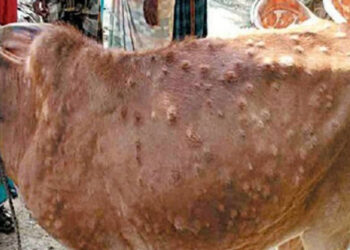![]() Follow Us on Google News
Follow Us on Google News
The National Institute of Health (NIH) has issued a serious warning regarding a rise in diphtheria cases across Pakistan, particularly in Karachi.
“Considering the emerging situation of the recent upsurge of diphtheria cases and associated mortality across various regions of the country and higher risk of transmissibility during the dry and cool season, it is of eminent importance that healthcare authorities should proactively implement prevention and control strategies to halt the ongoing transmission,” the advisory said.
Health officials have reported fatalities and numerous infections, particularly highlighting a tragic toll of over 100 deaths in Karachi alone.
What is Diphtheria?
Diphtheria is a contagious infection caused by a bacterium called Corynebacterium diphtheriae. The bacterium releases a toxin that causes a buildup of grey tissue in your throat, leading to problems with swallowing and breathing.
In warmer climates, someone with diphtheria might also develop skin sores that will not heal and may be covered with grey tissue. This type of diphtheria (called cutaneous diphtheria).
You can catch diphtheria through airborne droplets that contain bacteria (spread by sneezing, coughing, and spitting) or by touching something that has bacteria on it. It is also possible that an infected person could transmit the disease through an open sore touched by someone else, or touching clothes that someone else touches. It’s possible to get diphtheria more than once.
Common diphtheria symptoms include:
- Throat pain.
- Weakness or fatigue.
- Fever.
- Swollen neck glands.
- Problems breathing due to tissues obstructing your nose and throat.
- Difficulty swallowing (dysphagia).
- Nerve, kidney or heart problems (if the bacteria enters your bloodstream).




























![The severe water shortage highlights Pakistan’s ongoing struggles with water management and climate change impacts. [Image by Athar Parvaiz via dialogue.earth]](https://mmnews.tv/wp-content/uploads/2025/03/Jhelum-River-drought-120x86.jpg)








